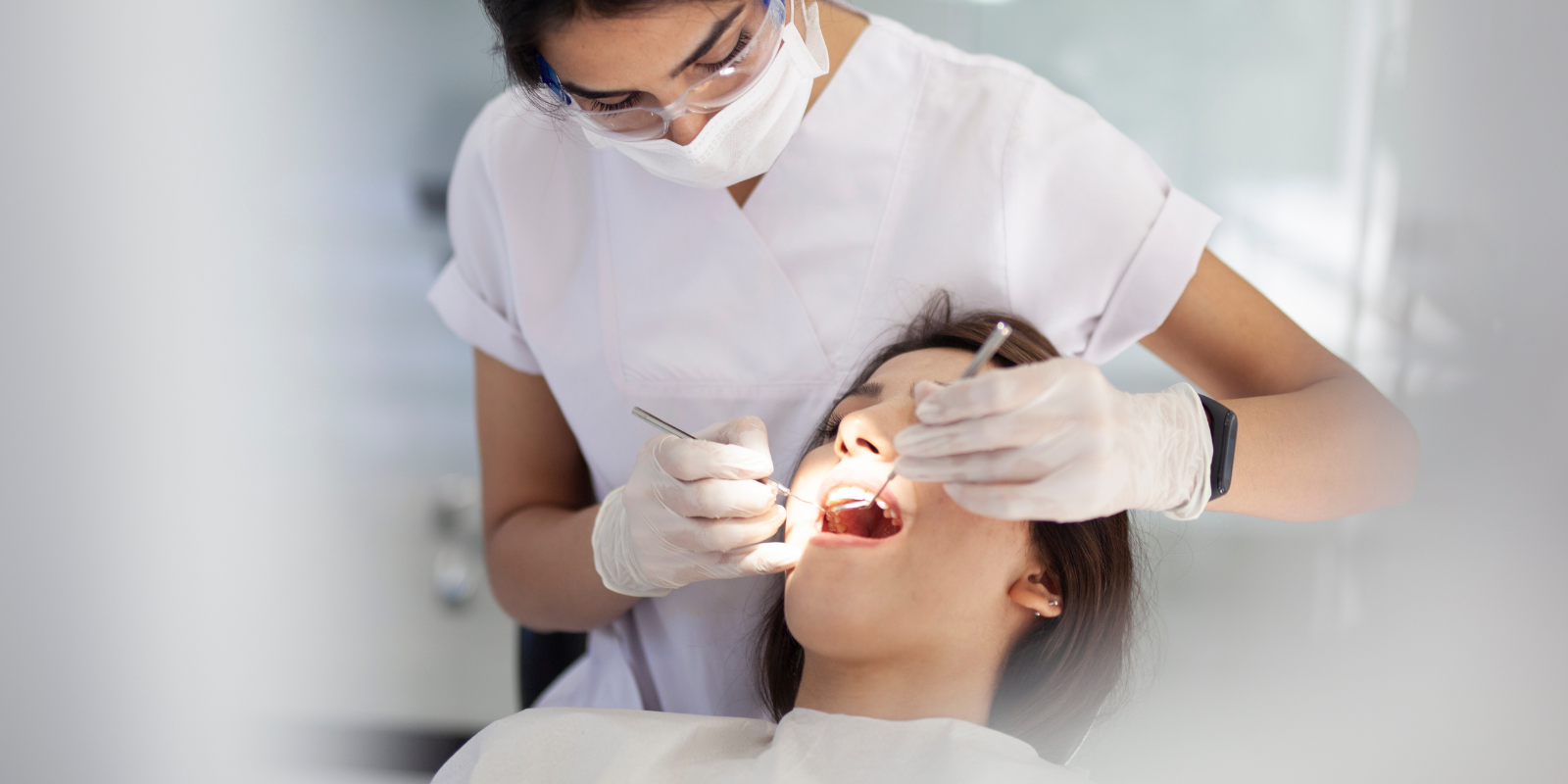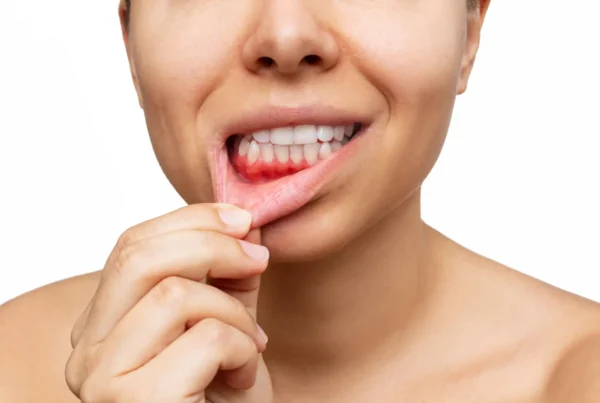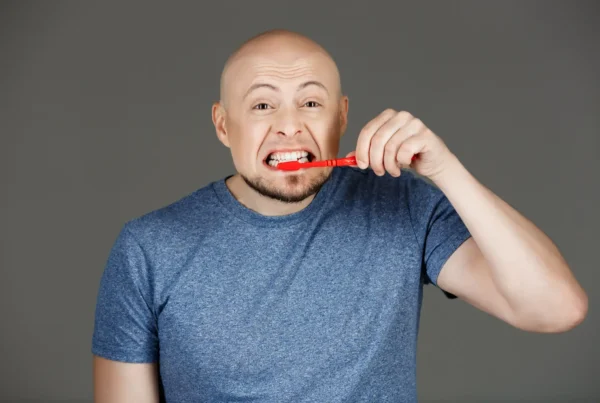- What is dental scaling?
- Types of scaling: supragingival, subgingival, ultrasonic, and more
- How does the scaling procedure work?
- Post-treatment care after dental scaling
- Scaling vs. air polishing – how long does each take?
- Who should consider dental scaling?
- Benefits of dental scaling and air polishing
- Cost of dental scaling – how much does professional cleaning cost?
- Summary

Oral health plays a crucial role in maintaining overall wellbeing. Untreated conditions in the mouth can lead not only to tooth loss but also to more serious systemic issues such as heart disease, diabetes, or generalized infections. One of the most common dental problems is the buildup of tartar, which increases the risk of cavities, tooth sensitivity, and gum disease. This is why preventive care and regular hygiene treatments—such as dental scaling—are essential. In this article, we explain in detail what scaling involves, how long it takes, what types exist, who it is for, its benefits, and how much it costs.
What is dental scaling?
Dental scaling is a procedure designed to remove tartar, a hardened form of plaque that accumulates on teeth due to poor oral hygiene, high-sugar diets, smoking, or excessive consumption of coffee and tea. Many people wonder whether scaling is painful. The answer depends on several factors such as pain sensitivity, the condition of the gums and teeth, the dentist’s technique, and the quality of equipment used. Tartar is not only an aesthetic concern—it can lead to gum inflammation, weakened enamel, bleeding during brushing, gum recession, tooth mobility, and even tooth loss.
Types of scaling: supragingival, subgingival, ultrasonic, and more
Depending on the location of the tartar and the tools used, there are several types of dental scaling.
- Supragingival scaling removes tartar and bacterial plaque from the tooth surfaces above the gum line. It is the most common type of scaling and is mainly focused on cleaning the chewing and visible surfaces of the teeth. It is both preventive and cosmetic, as it enhances the appearance of the smile by eliminating discoloration and deposits.
- Subgingival scaling targets tartar located below the gum line in the periodontal pockets. This procedure requires greater precision because it involves working in hard-to-reach areas. It is primarily used to treat periodontal diseases such as periodontitis.
- Ultrasonic scaling is the most commonly used method. It involves using ultrasonic vibrations to break down tartar. This technique is fast, effective, and minimally invasive.
- Laser scaling is a modern technique using laser energy to remove tartar and deposits. It is less commonly used and typically reserved for advanced periodontal cases.
Manual scaling is done with hand instruments such as curettes. It is rarely performed alone nowadays but is often used to supplement ultrasonic scaling.
READ MORE: DENTAL STRIPPING
How does the scaling procedure work?
Dental scaling is performed in a dental office and is generally painless and quick. First, the dentist conducts a clinical examination, assesses the oral condition, and evaluates tartar buildup. The patient is informed about the procedure and post-treatment recommendations.
Depending on the case, either supragingival or subgingival scaling is performed using the appropriate tools. The instruments break down the tartar, which is then rinsed away with water. Afterward, the teeth are polished with a special paste and brushes. This step smooths the tooth surfaces and helps prevent plaque from forming again.
Post-treatment care after dental scaling
After the procedure, patients should avoid smoking and consuming staining foods and drinks like coffee, tea, or red wine. If sensitivity occurs, using toothpaste for sensitive teeth is recommended.
Scaling vs. air polishing – how long does each take?
It is important to note that scaling and air polishing are two separate procedures. The duration of each depends on the level of tartar accumulation and the overall condition of the oral cavity. Scaling involves removing tartar using ultrasonic tools and takes about 30 to 40 minutes. Air polishing, which removes surface stains using a pressurized stream of water, air, and fine particles, usually takes about 20 minutes. Both treatments combined typically take between 30 and 60 minutes. Regular scaling and stain removal are key to maintaining a healthy and aesthetically pleasing smile.
Who should consider dental scaling?
Scaling is recommended for anyone with visible tartar buildup or gum issues. It is especially suitable for individuals with gum inflammation or periodontal disease, smokers, and those who regularly consume drinks that cause stains.
Benefits of dental scaling and air polishing
Scaling offers both health and aesthetic benefits. It improves oral hygiene, helps prevent cavities and periodontitis, reduces the risk of plaque and tartar buildup, enhances tooth appearance by removing stains, and eliminates bad breath caused by bacteria in tartar deposits.
Cost of dental scaling – how much does professional cleaning cost?
The cost of dental scaling depends on the location of the dental office, the technology used, and the experience of the practitioner. The typical price ranges are as follows:
- Supragingival scaling: PLN 100–300
- Subgingival scaling: PLN 200–600
- Complete cleaning (scaling + air polishing + fluoride): PLN 300–600
In Poland, the National Health Fund (NFZ) covers the cost of scaling once a year for insured patients. However, the reimbursement only applies to the basic procedure.
Summary
Dental scaling is one of the most important preventive treatments for maintaining oral health and avoiding serious dental complications. Regular tartar removal not only improves the appearance of your teeth but also protects the gums and overall oral structure. The cost of the procedure is relatively low compared to the long-term benefits, and some patients may even qualify for NFZ reimbursement. A healthy mouth is the foundation of overall well-being, so we encourage regular dental visits and consistent daily hygiene.





